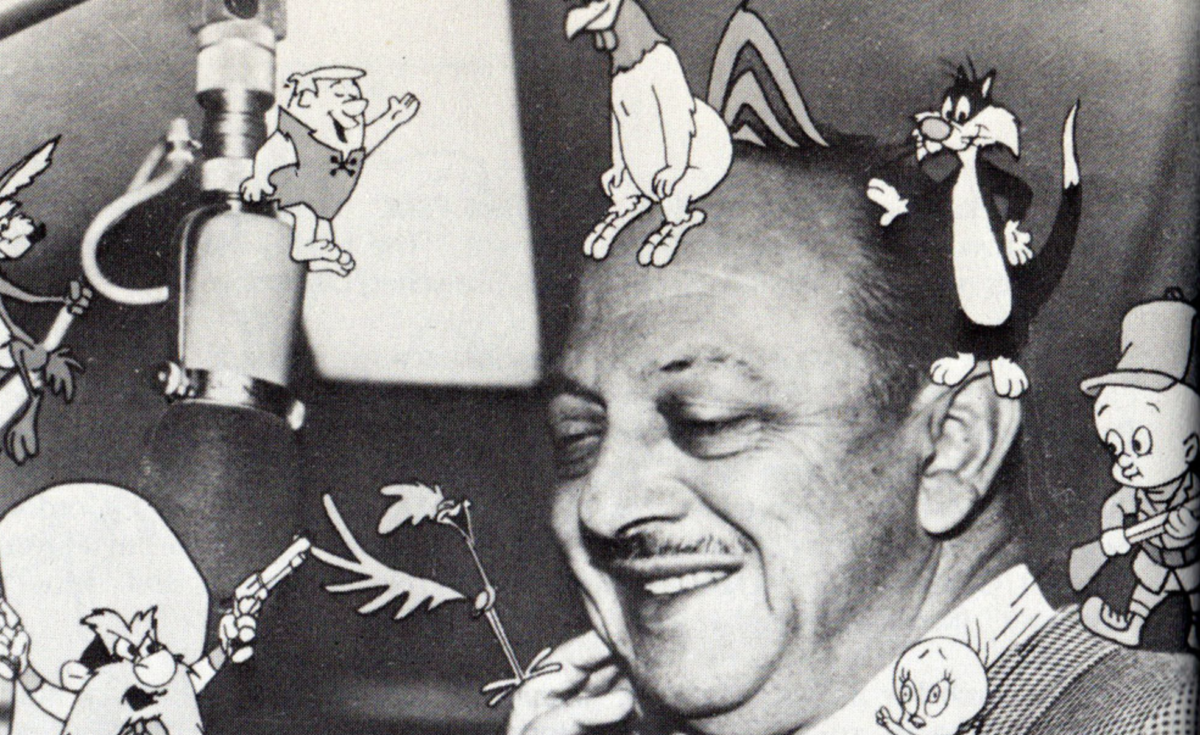
Great talents seem to embody their craft. It’s as if they invented the form and then broke the mold when they were finished with it.
One of the best modern examples of this virtuosity is Mel Blanc, voice of Bugs Bunny and nearly all of the Looney Tunes cartoon gang. Blanc, who voiced more than 1,000 characters, was famously hard-working. At one point in his career, he scrambled from studio to studio around Los Angeles to work on 18 radio shows in one week.
As Malcolm Gladwell likes to say, that kind of practice leads to mastery. And, in Mel Blanc’s case, it may have saved his life.
Radio Lab, broadcast over WNYC, recently aired a piece about Blanc (listen below) featuring an interview with his son Noel Blanc, who is also a voice actor. Noel Blanc tells the story of a terrible car accident that badly injured his father in 1961 as he was driving home along Sunset Boulevard from a job in San Francisco. Mel Blanc, driving an Aston Martin, collided with another car on Dead Man’s Curve. Blanc was almost killed and slipped into a coma. Blanc’s son and wife spent two weeks at his bedside trying to revive him, but got no response.
One day, about 14 days after the accident, one of Blanc’s neurologists walked into the room and tried something completely new. He went to Mel’s bed and asked, “Bugs Bunny, how are you doing today?”
There was a pause while people in the room just shook their heads. Then, in a weak voice, came the response anyone would recognize.
“Myeeeeh. What’s up doc?”
The doctor then asked Tweety if he was there too.
“I tot I taw a puddy tat,” was the reply.
It took seven more months in a body cast for Blanc to recover. He even voiced Barney Rubble in the first episodes of The Flintstones while lying in bed with a microphone dangling from above.
The Radio Lab piece includes excerpts from an episode of This is Your Life when Blanc’s doctor tried to explain how he revived his patient. “It seemed like Bugs Bunny was trying to save his life,” was all he could say.
Radio Lab features another neurologist’s opinion: Blanc was such a hard-working professional that his characters lived, protected from the brain injury, deep in his unconscious mind. The doctor’s question must have sounded like a director’s cue.
Essentially, “Mr. Blanc, you’re on.”
And he was, until 1989. Listen through to the end of the podcast. The end of Blanc’s life is as remarkable as his long career.
Below, we have added a related documentary, Mel Blanc: The Man of a Thousand Voices.
Kate Rix writes about education and digital media. Visit her website to see more of her work. Follow her on Twitter: @mskaterix.

